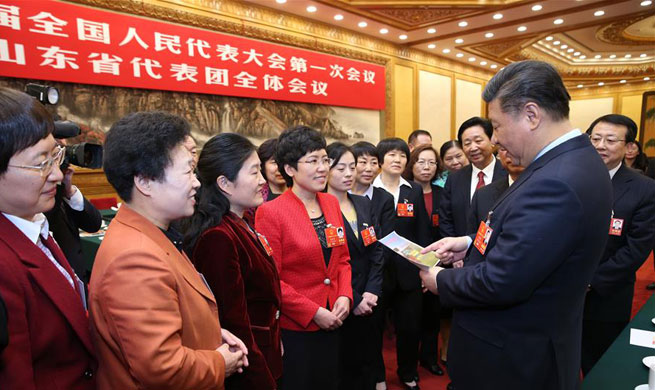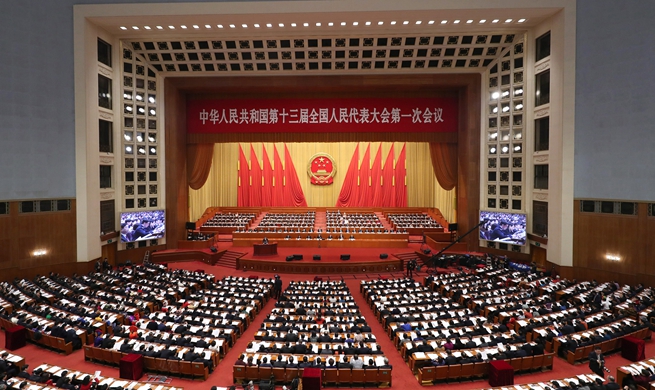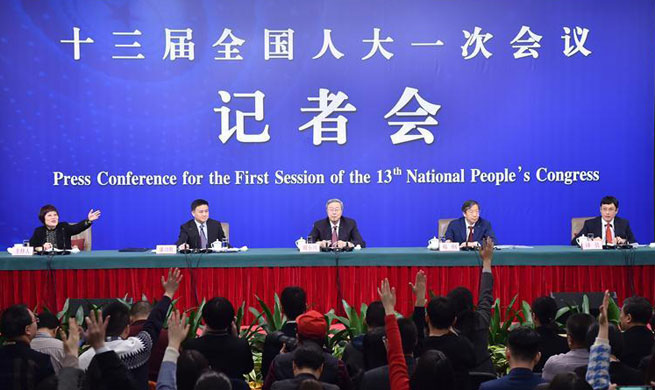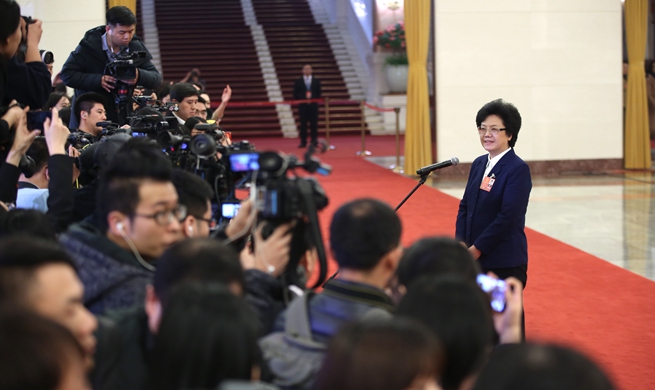BEIJING, March 9 (Xinhua) -- A South Korean official dropped a bombshell Thursday with the announcement that President Donald Trump has agreed to meet Kim Jong Un, top leader of the Democratic People's Republic of Korea (DPRK), and Pyongyang will refrain from nuclear or missile tests.
Despite the current detente between the two Koreas, especially during the Winter Olympics in PyeongChang, a meeting in the near future between the top leaders of the United States and the DPRK had seemed unlikely, given the remarkable coldness between American and DPRK representatives in the South Korean ski resort.
Pyongyang's recent pronouncement that it would not accept any precondition for direct dialogue with Washington also made people think that a DPRK-U.S. dialogue, if it ever happened, would not come soon.
The agreed Trump-Kim meeting is therefore a notable progress regarding the Korean Peninsula nuclear issue, and deserves applause from everyone, especially after the tit-for-tat vicious cycle as Washington and Pyongyang repeatedly traded threats that raised the specter of a nuclear war in the region last year.
However, if history is any guide, on the heels of every positive development, there are always disturbances to dash the hope of a smooth path toward a peaceful solution.
Washington and Pyongyang, the two parties at the crux of the issue, need to take concrete actions to make the planned dialogue a reality and a success, so as to resolve the Korean Peninsula nuclear crisis at an early date, in joint efforts with other parties to the issue.
They have to at least set aside their long-running animosity and distrust toward each other, refrain from provocations that run the risk of aborting the agreed dialogue, and be prepared for bold compromises.
The current detente between the two Koreas has good reasons. Apart from the political will on both sides, it is also nurtured by factors such as Pyongyang's suspension of nuclear and missile activities and the suspension of U.S.-South Korea war games during the Winter Olympics.
To sustain the momentum on the peninsula, the parties should heed China's proposal of suspension-for-suspension and follow the "dual-track approach" to the issue.
China has suggested the DPRK suspend its nuclear and missile activities in exchange for the suspension of large-scale U.S.-South Korea military drills. The dual-track approach suggests denuclearizing the peninsula while establishing a peace mechanism.
To quote Chinese Foreign Minister Wang Yi, here comes another "moment of truth" for the parties to demonstrate their seriousness about resolving the issue. As Wang said, "We must not let the opportunity slip by."
China, as a key party to the Korean Peninsula nuclear issue, will as always continue to make ceaseless efforts toward denuclearization and lasting peace on the peninsula.
Related:
Trump agrees to meet DPRK's Kim by May, tweets about "great progress"
WASHINGTON, March 8 (Xinhua) -- U.S. President Donald Trump has agreed to meet Kim Jong Un, top leader of the Democratic People's Republic of Korea (DPRK), by May at Kim's invitation, "to achieve permanent denuclearization", a visiting South Korean envoy said here on Thursday. Full story

















